Hospitality: The New Hoteliers / Global
Be Our Guest
What does it take to run a hotel that is beautifully appointed and has that personal touch too? We meet the hospitality enthusiasts who have traded in their day jobs to open their very own guesthouses in city centres, jungles and beachside.
Many a traveller, lounging poolside on a Greek island or sitting before a fire at a cosy English country inn has, in their unencumbered state of idleness, entertained the thought, “What if I owned this hotel?” New hoteliers are born every minute but over the past few years, as the coronavirus pandemic shifted both the way we work and what we desire from our careers, their numbers have swelled. We travel from Kerala to Costa Rica via Sicily, Portugal and Mexico to meet those who have recently shifted from other professions into hotel management with aplomb.
1
Rasmi Poduval
Cranganor History Café & Riverside
Château, Kerala
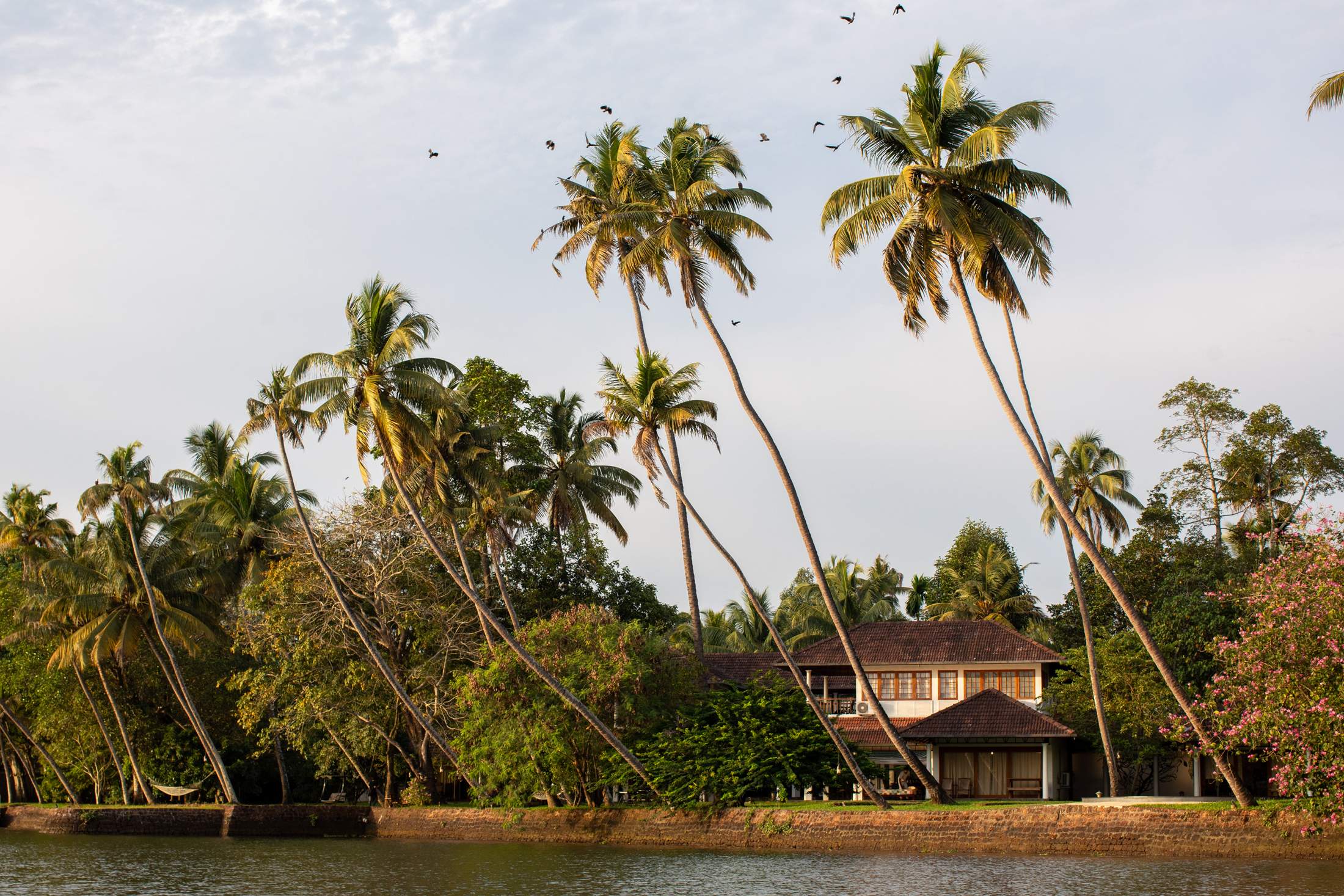
A successful career in marketing is proving useful when promoting this riverfront retreat but there were still important lessons to learn.
“You reach a certain point in your career where you begin to think, ‘Is this it?’ You want a larger purpose in life,” Rasmi Poduval tells Monocle on the veranda of her seven-bedroom hotel on the banks of the Periyar River in Kerala. The peaceful scene feels a long way from Poduval’s former career in the Bangalore corporate world. She and her husband, Vineeth, each worked in marketing for the likes of Coca-Cola and the huge Indian conglomerate ITC for nearly 20 years before quitting their jobs and opening the Cranganor History Café & Riverside Château in 2017.
“I can’t exactly say when we decided we wanted to do this,” she says. “Ultimately it was a combination of wanting out of city life and travelling into Kerala’s hinterland and realising that there’s a wealth of history and culture there that isn’t being showcased.”

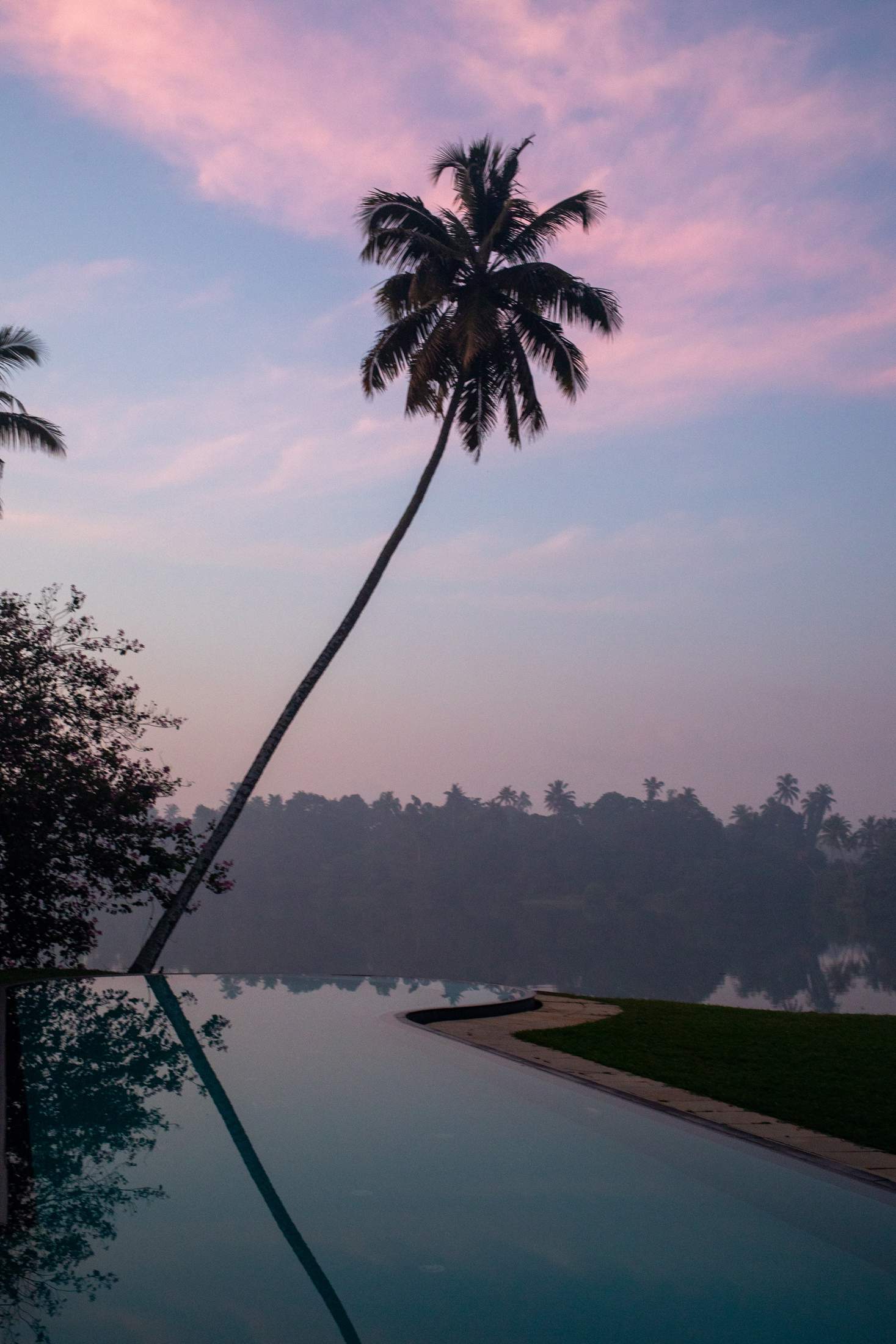
After a three-year search that began in 2014, they finally found the spot: a riverfront plot across the water from Chendamangalam, a historic Kerala town that was once a major weaving hub and sits in a region that is home to some of South Asia’s oldest mosques and synagogues. Once the land was secured, lunch breaks and evenings in Bangalore were spent figuring out what they would do with it. “At that point, only we could see it. No one else could understand what we were trying to do or
“This place has taught us so much more than what we learnt at any other job”
why,” she adds. Friends and family were even more confounded by their decision to pull their two daughters out of school and move to the building site. It wasn’t difficult to convince their girls though. “We offered them six months out of school to get their buy-in,” says Poduval with a laugh.
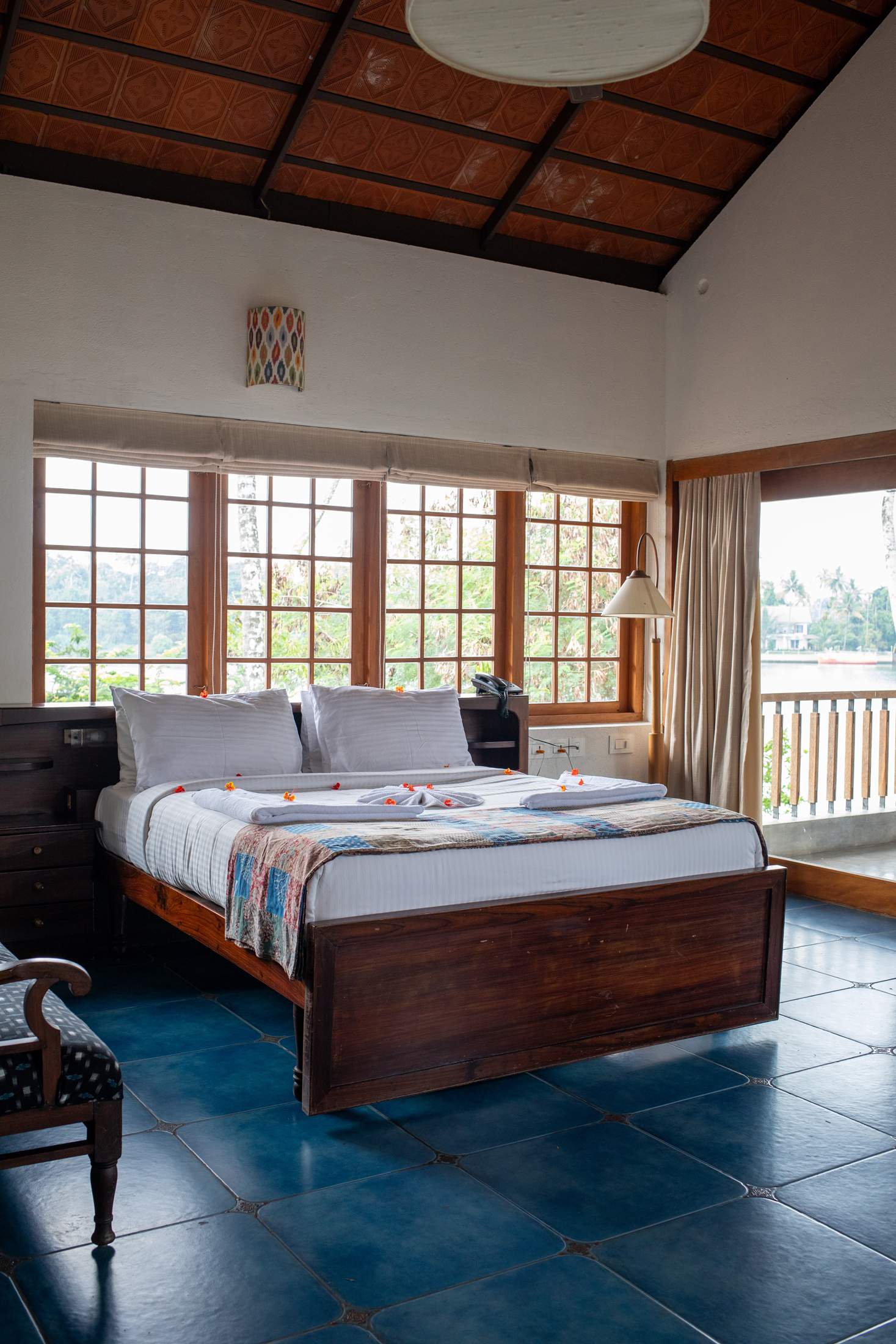
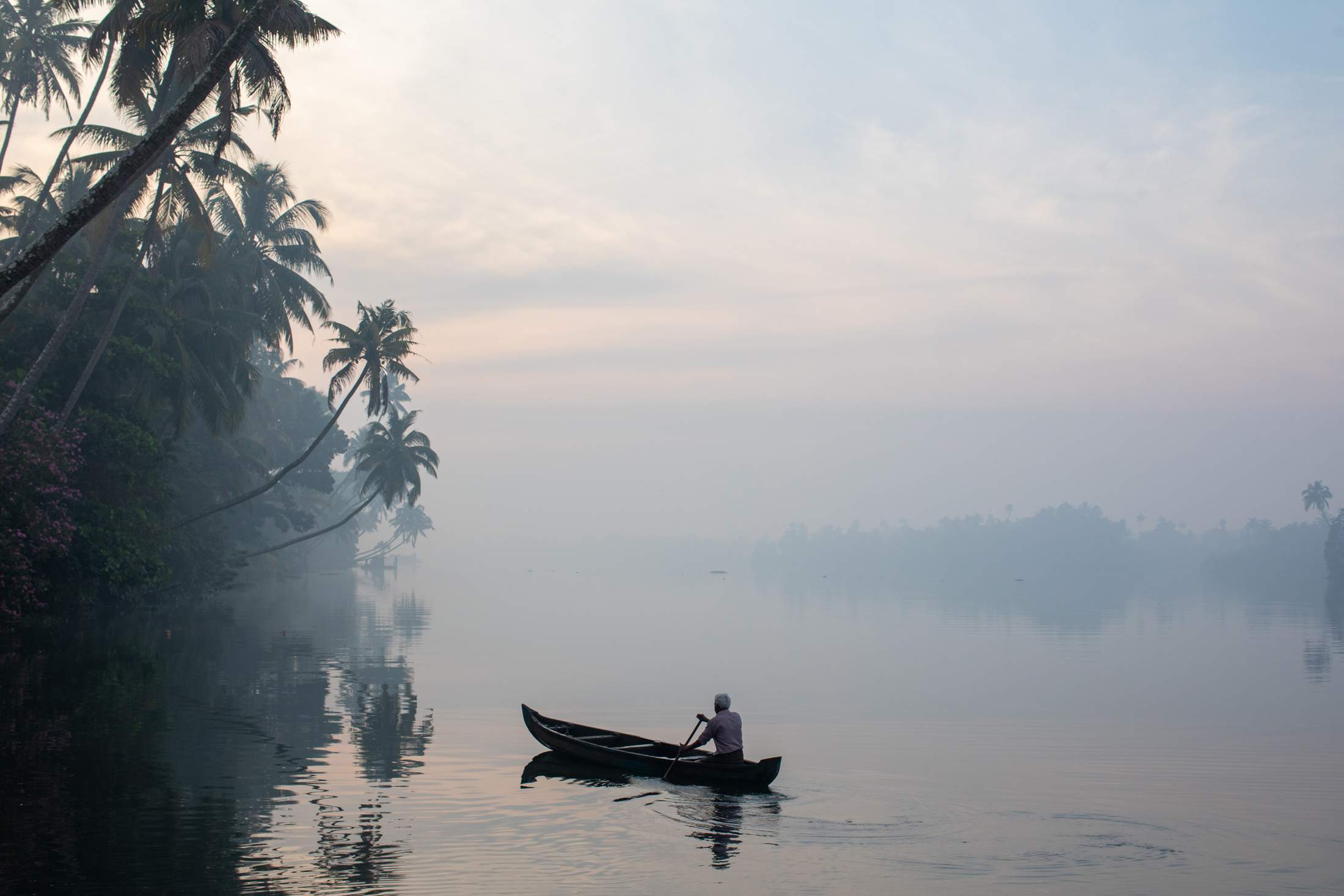
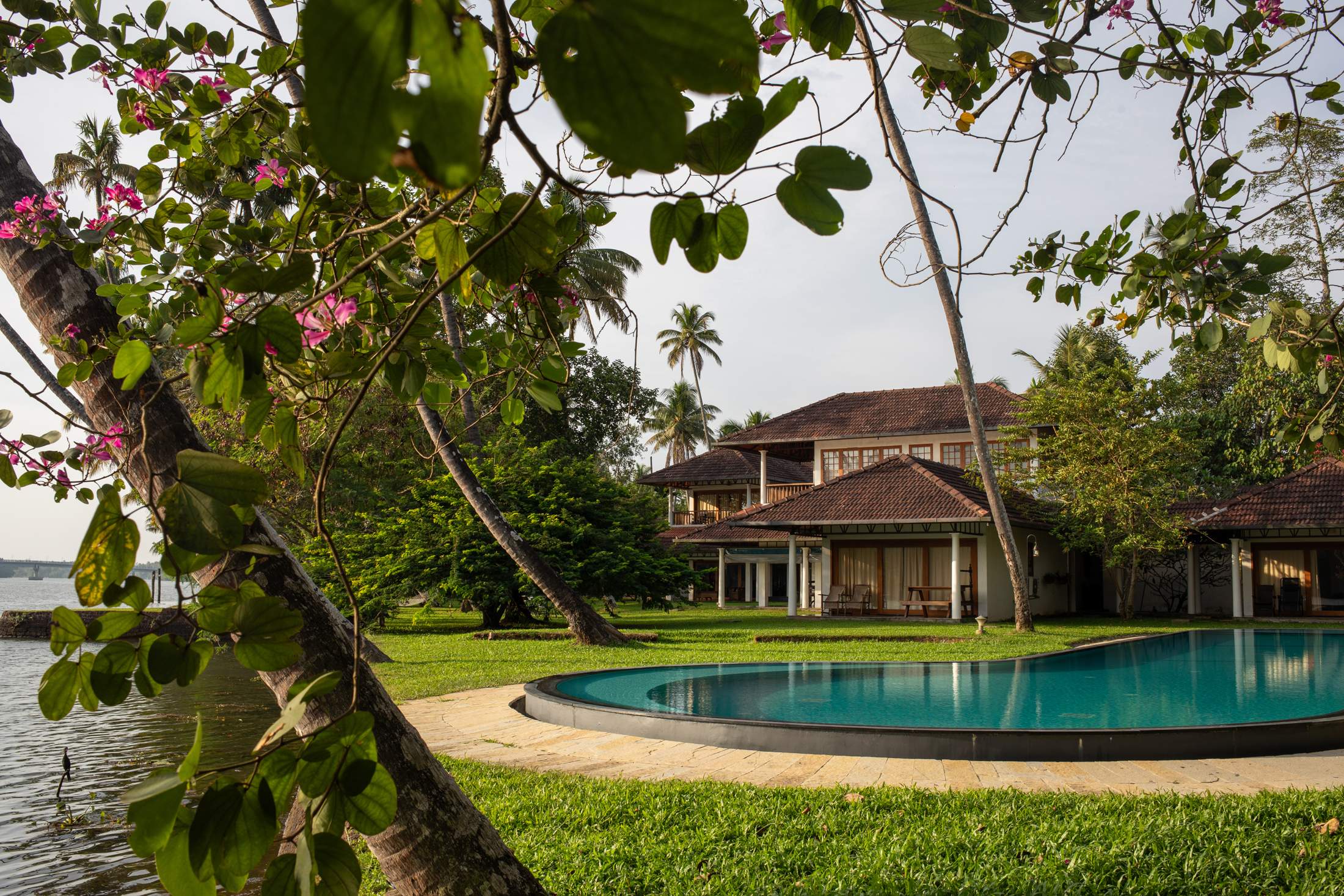
As soon as ground was broken, Poduval put on her marketeer’s hat and began drumming up attention on social media. “I blogged about our village life: implements used to dig, the woman who would steal our coconuts, everything,” she says. By the time they were ready to welcome guests, her social media accounts had gained quite a following. “We had no hospitality background. It didn’t even occur to us to go to tour operators. Our social media followers were our first guests.” This marketing push continues with posts on regional cooking and tours of local festivals. Poduval also posts about the folk performances that they host at the property. “I also talk to guests and collect insights on what content they liked and use that for future stories,” she says. “That’s where the marketing mind comes into play.”
Is there another corporate skill that Poduval has put to use? “It’s actually the reverse,” she says. “This place has taught us more than what we learnt at any other job.” In the corporate world, goals are set, instructions issued and expected to be carried out precisely. “That obviously won’t work here. I cannot control everything in a place where I don’t even understand all the parameters.” All of her employees are local villagers, including several former housewives working in their first paid jobs. “I’ve learned it’s better to set broad goals and let them work it out,” she adds with a smile. “You then get solutions that you would otherwise have not thought of.”
cranganor.com
2
Octavio Aguilar
Casa Polanco, Mexico City
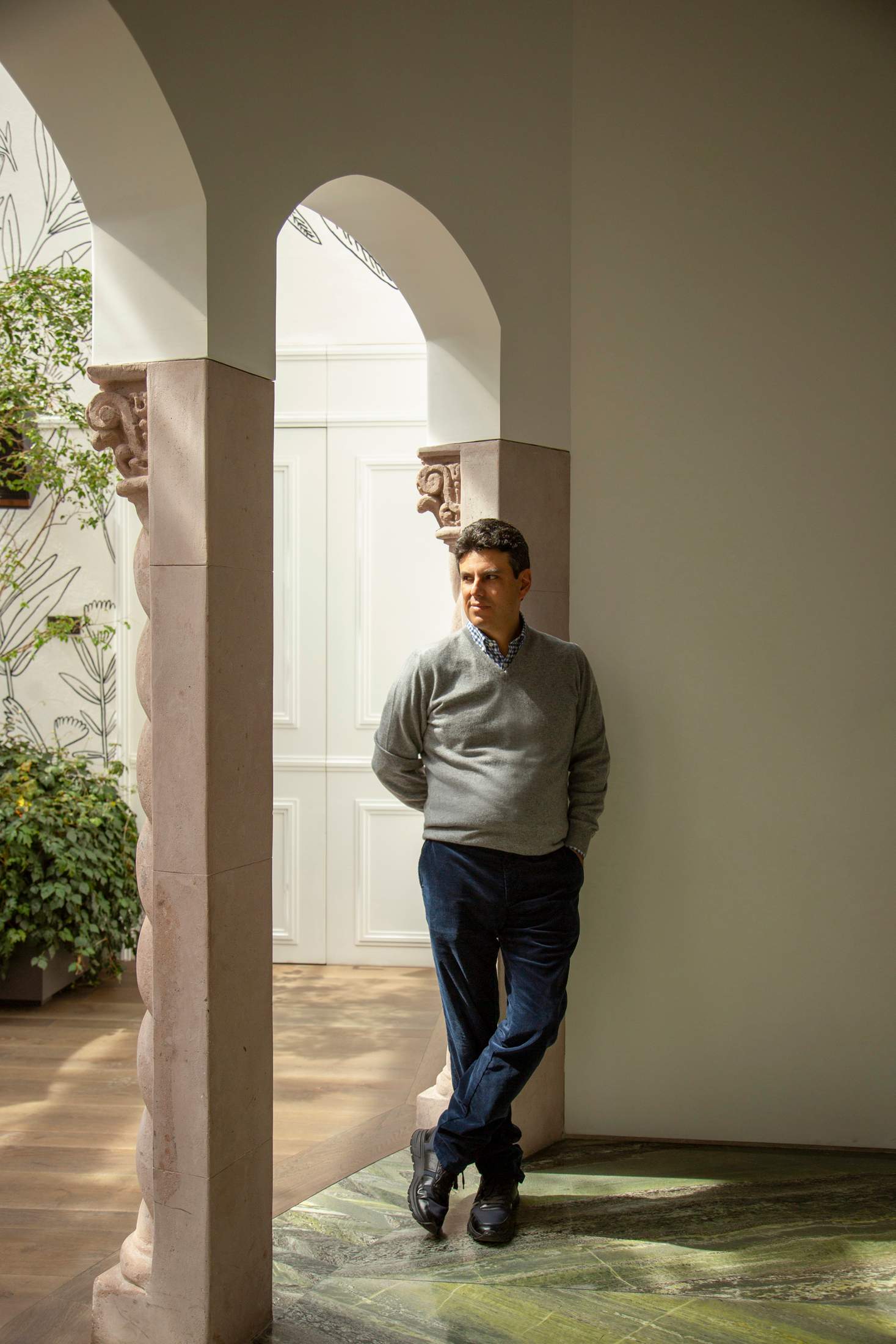
For the real estate developer, a routine renovation project provided the perfect opportunity to share the beauty of his neighbourhood with visitors.
When Octavio Aguilar bought the white 1920s building that now houses Casa Polanco, he hadn’t intended on opening a hotel. “I was planning on doing what I’d done before: renovating small buildings for apartments or offices,” he says. But then he stumbled upon papers that permitted the mansion to be operated as a hotel. “I knew that I had to do this project.”
Despite never having worked in hospitality, he has always had a deep appreciation of hotels. “When I was young, my parents travelled with me a lot and they would let me choose where we would stay,” he says. “I fell in love with small boutique hotels.”

Casa Polanco’s location is spot on: close to Chapultepec Park and restaurants such as Pujol. But being across from peaceful Lincoln Park was the clincher, especially in a place as
“When I first discovered Polanco, I fell in love with it. I want people to feel like they are staying in a Mexican home”
busy as Mexico City. “If this mansion was 10 blocks or even three blocks away, I wouldn’t have done it,” he says. As someone who has lived in the Polanco neighbourhood for more than a decade, Aguilar was eager to show it to travellers. “When I first discovered Polanco, I fell in love with it,” he says. “I want people to feel like they are staying in a Mexican home.”
The hotel’s light-filled communal areas and homey rooms that tumble onto terraces do indeed make it feel like someone’s home. But it was Aguilar’s background in business administration and real estate – industries he still works in – that enabled him to follow through with the project. “My background helped a lot with doing the physical space,” he says.
He intended to take a step back but changed his mind. “It made sense for me to get involved because there are always things you can do better.” Aguilar now spends half his time working at the hotel. “It’s always evolving and always requires something,” he says. Given the opportunity, he would consider opening another hotel but it would all come down to where. “Location, location, location. I’m a true believer in that.”
casapolanco.com
3
Pedro Oliveira & Alicia Valero
Hotel das Amoreiras, Lisbon
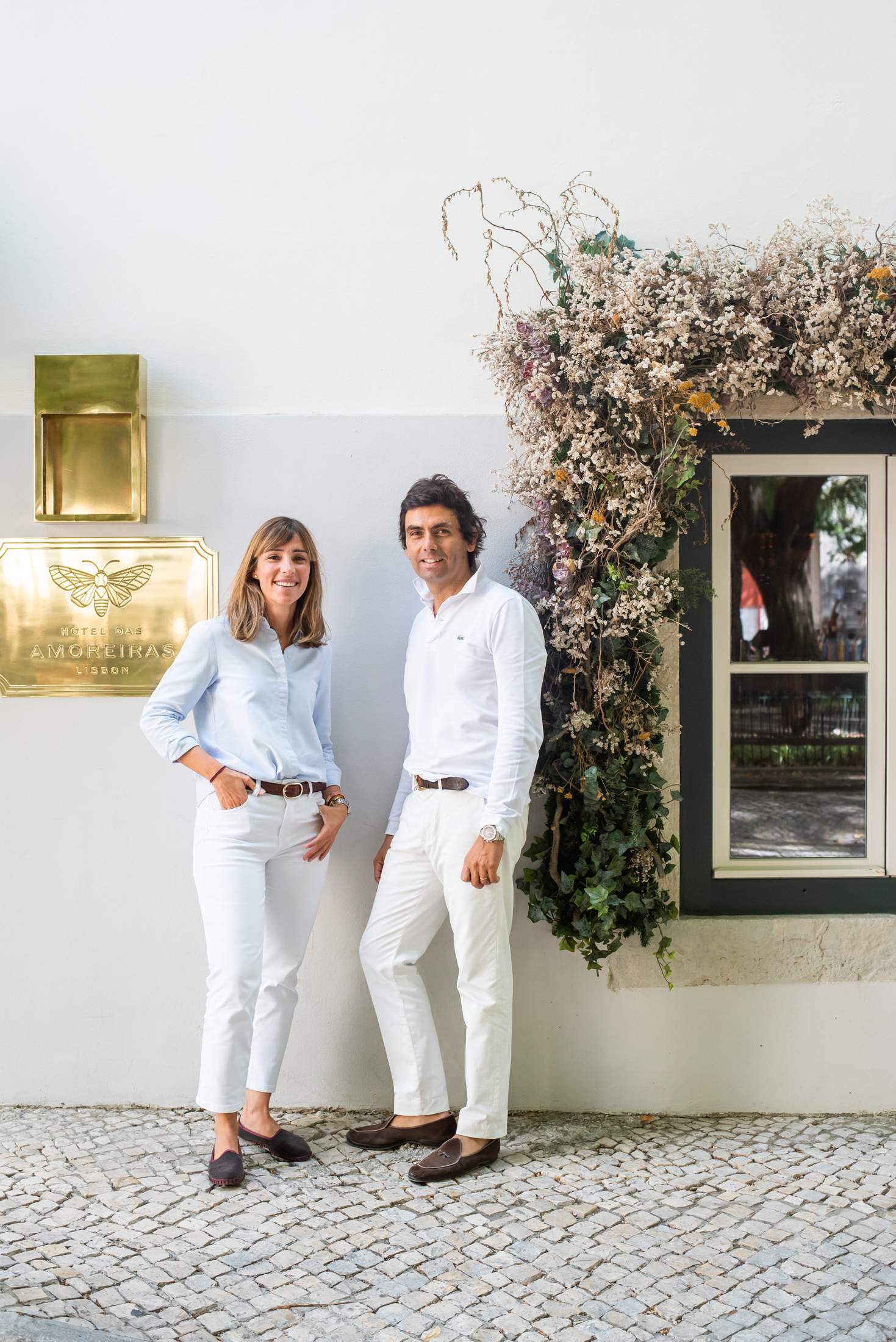
The soulful ambience of this grand city establishment was planned in meticulous detail by the hotel-loving Swiss banker and his wife.
Pedro Oliveira has had a lifelong love affair with hotels. As a boy he toured some of Europe’s grandest hotels with his parents, making a particularly memorable trip to London’s Claridge’s. “I have always been fascinated by hotels,” he says. “They are important meeting places for people from all walks of life: politicians, diplomats, aristocrats and artists. It’s a very glamorous world.” Even after becoming a private banker in Geneva, Oliveira remained tempted by the world of hospitality. When renovations were under way at the famous Hotel des Bergues, he bought up its old cutlery for his home. “I love having such pieces. It gives one a sense of ceremony in their daily life.”
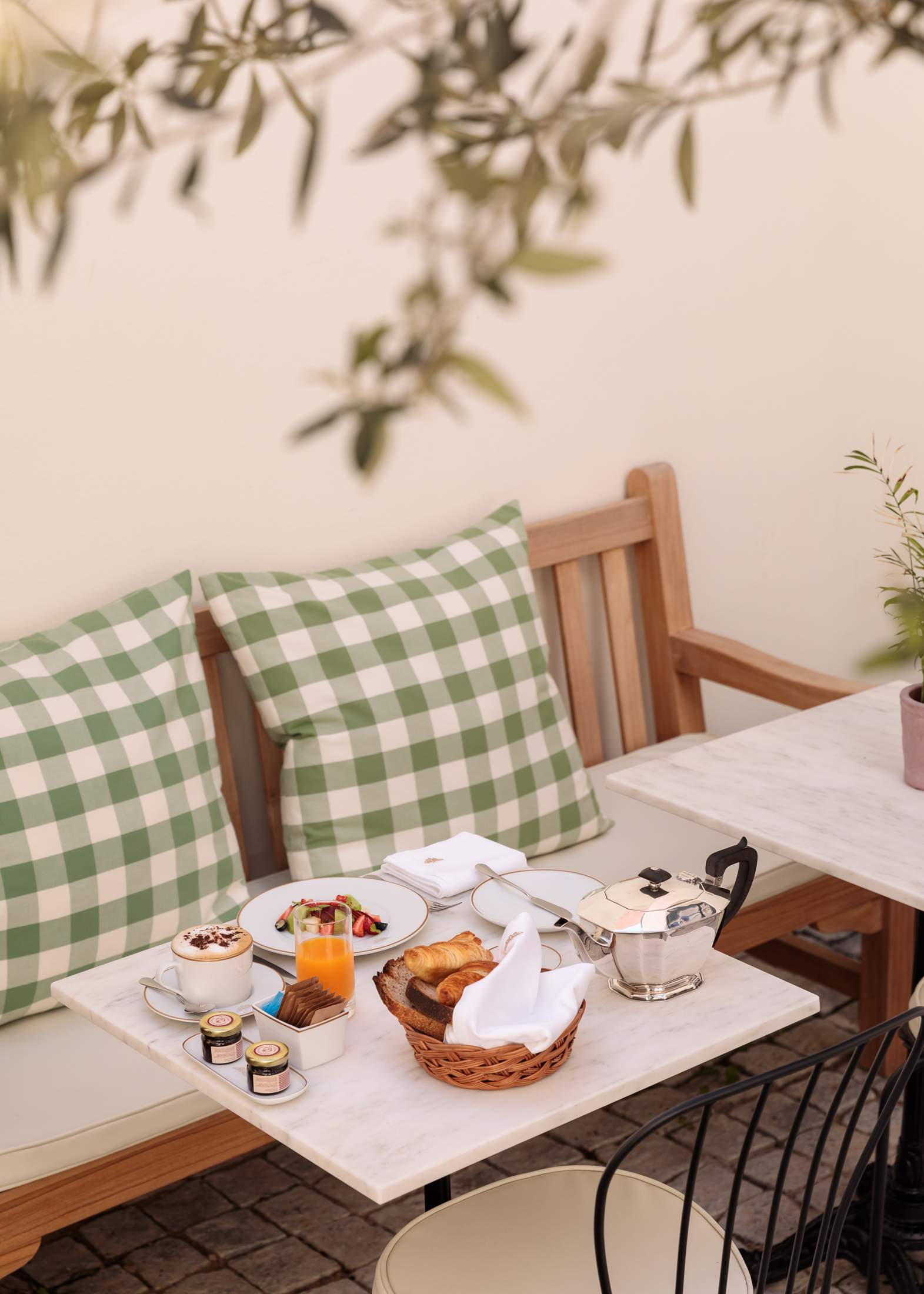
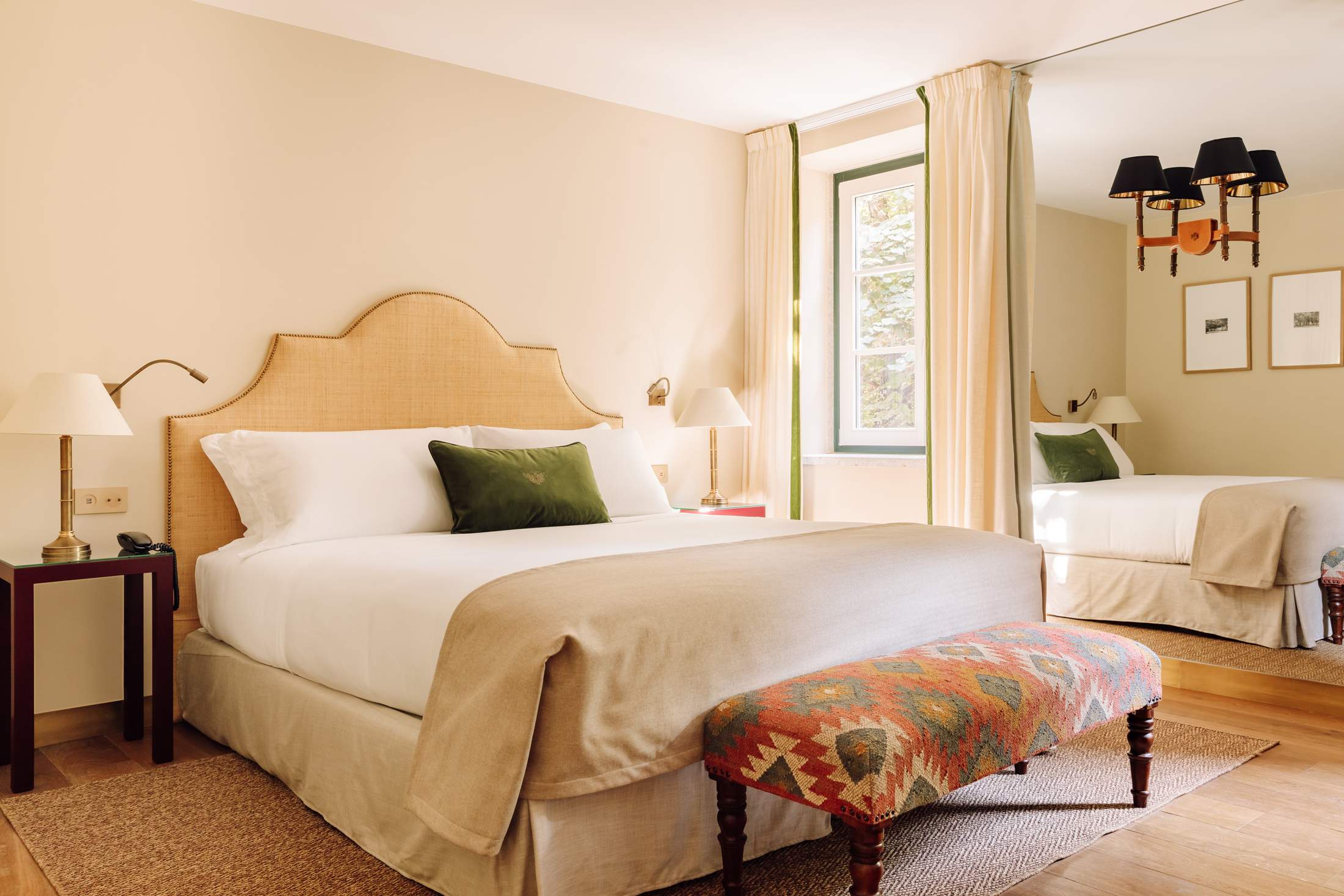
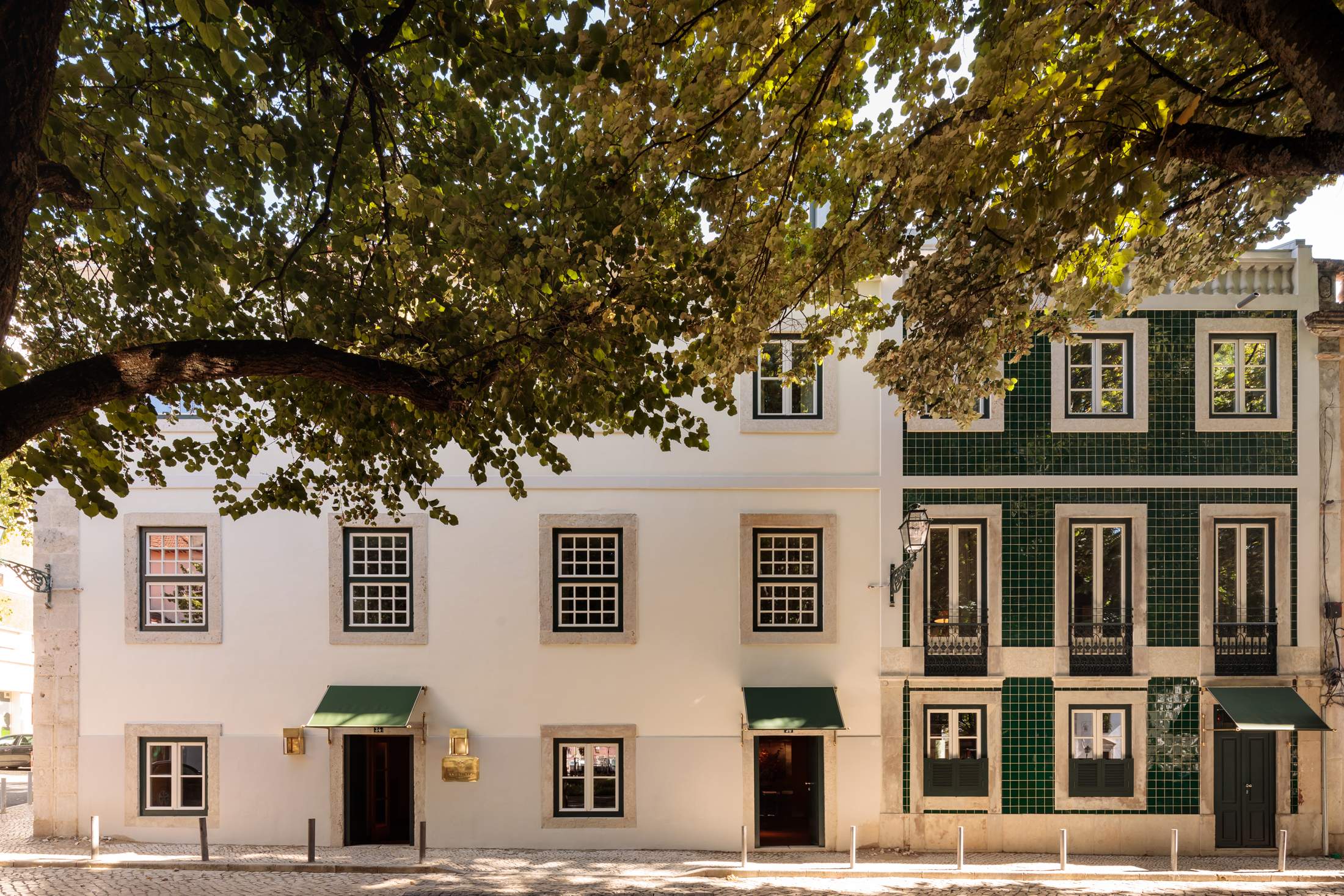
Finally, in 2016, he decided to take the leap, buying a building in Lisbon’s leafy Praça das Amoreiras. Then he bought an adjacent townhouse and drew up plans for a 19-room property. To prepare himself for the shift into the profession, Oliveira signed up to a year-long hotel-management course at Swiss hospitality school Les Roches. “I was twice the age of my classmates but didn’t mind starting over,” he says. “I learned all the details of the job, from serving coffee to laying the table.” Oliveira studied at the school’s Marbella campus to be close to his wife, Madrid native Alicia Valero, whose background is in luxury marketing. Together, they planned every inch of their new establishment, Hotel das Amoreiras, right down to the placement of the electrical sockets.
The hotel has plenty of personal touches, from paintings in the bar that once hung in the family home to a drinks trolley in the foyer from which guests can take their own refreshments. Hallways have discreet lighting, rooms are in muted shades of green, sand and beige, and bathrooms are decorated in elegant Estremoz marble. But perhaps the most luxurious touch is that breakfast is served until noon. “I wanted something warm and soulful,” says Oliviera. “It’s a cosy inn with a touch of the grand hotel ambience.”
hoteldasamoreiras.com
4
Stefanie Tannenbaum
Sendero, Costa Rica
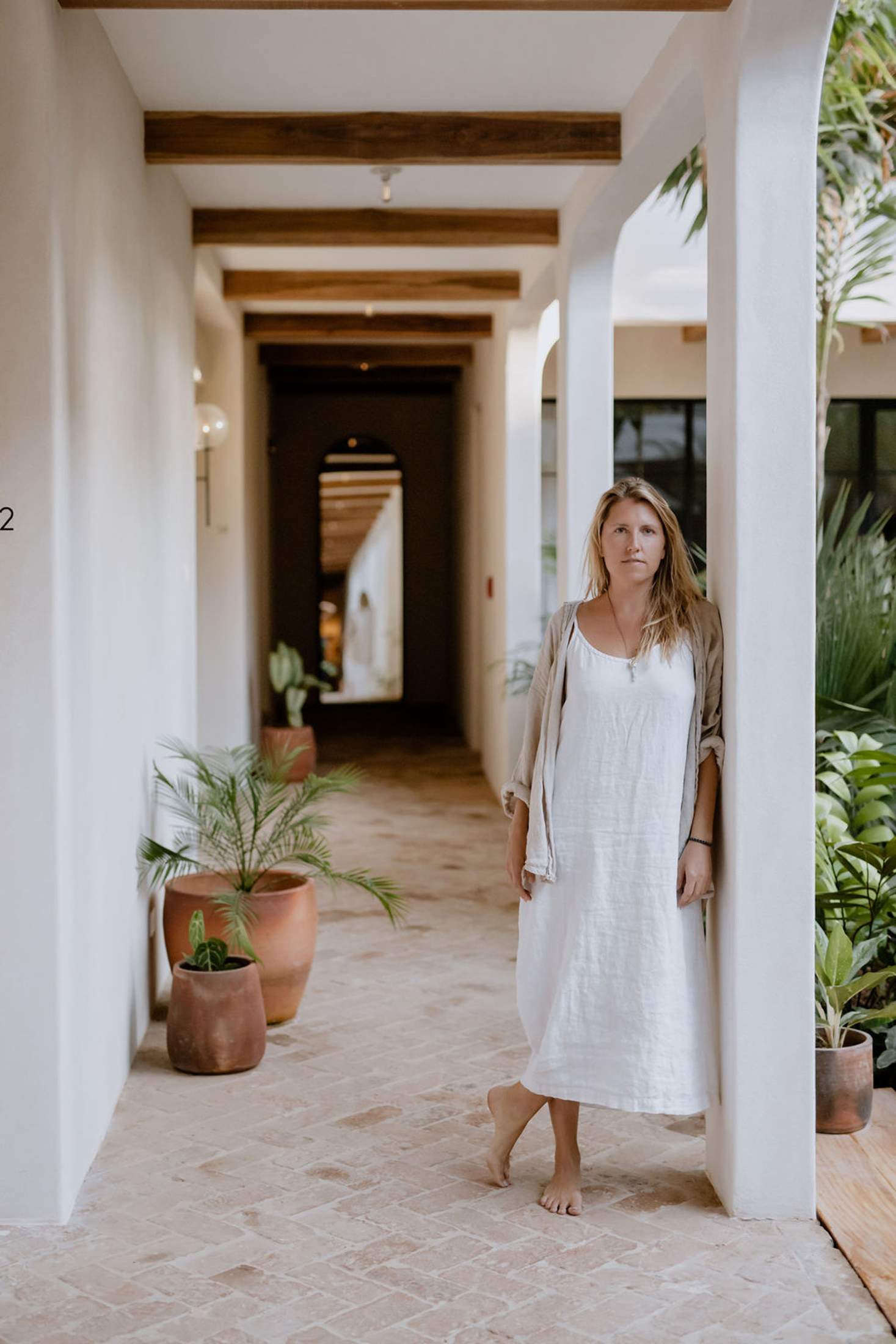
Stefanie Tannenbaum
Stranded in paradise during the coronavirus pandemic, this New York real estate manager decided to swap the urban jungle for a real one.
Back when she was working in commercial real estate in New York, one of Stefanie Tannenbaum’s roles was asset management at the Rockefeller Center. While much of that work revolved around office tenants, she says, “we also had to curate the experience and work around the hospitality demands of the property”. This part of the job, she adds, “was much more interesting to me”. Tannenbaum suddenly had the idea to open her own hotel. Realising how little she knew about the business, she decided to join Lark, then a small hotel start-up. “I joined as an assistant,” she says. “I said, ‘I’ll take any job.’”
A few years later, the 38-year-old was on holiday with her husband and baby in Nosara, a small beach town on the Pacific Coast of Costa Rica. With about two miles of strikingly consistent surf on its idyllic beach, Nosara has become a mecca for surfing yet has largely avoided overdevelopment. When pandemic restrictions hit in 2020, Tannenbaum took the leap. She had become friendly with Sarah Kosterlitz, a US expat living in Nosara, and something clicked. “We went to lunch and I said, ‘Do you want to do this with me?’ She replied, ‘I don’t know anything about this,’ and I said, ‘We’ll figure it out.’” They pooled their life savings and opened Sendero, a 25-room hotel with a restaurant, art gallery and surf school a short walk from the beach and overlooking a nature reserve.
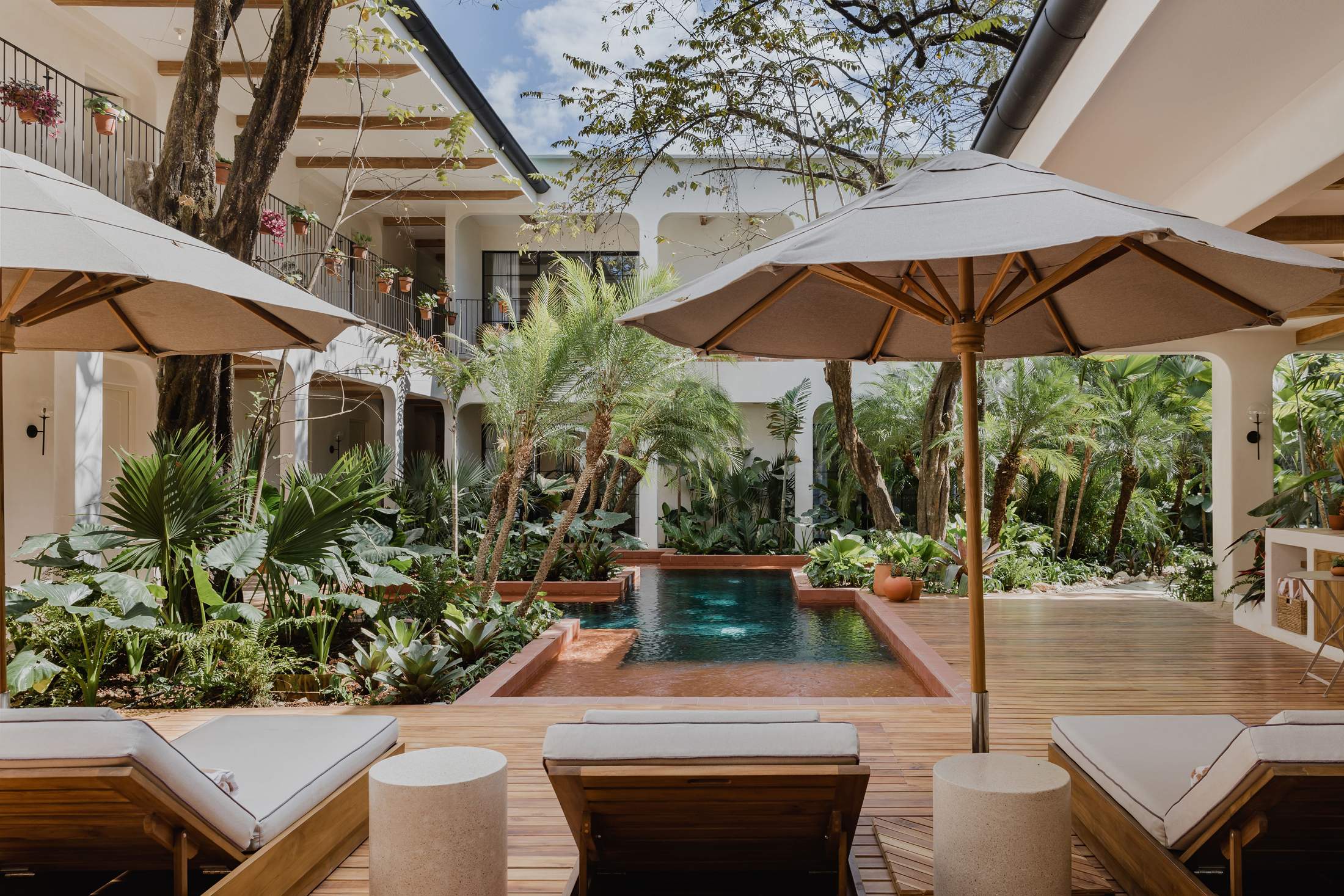
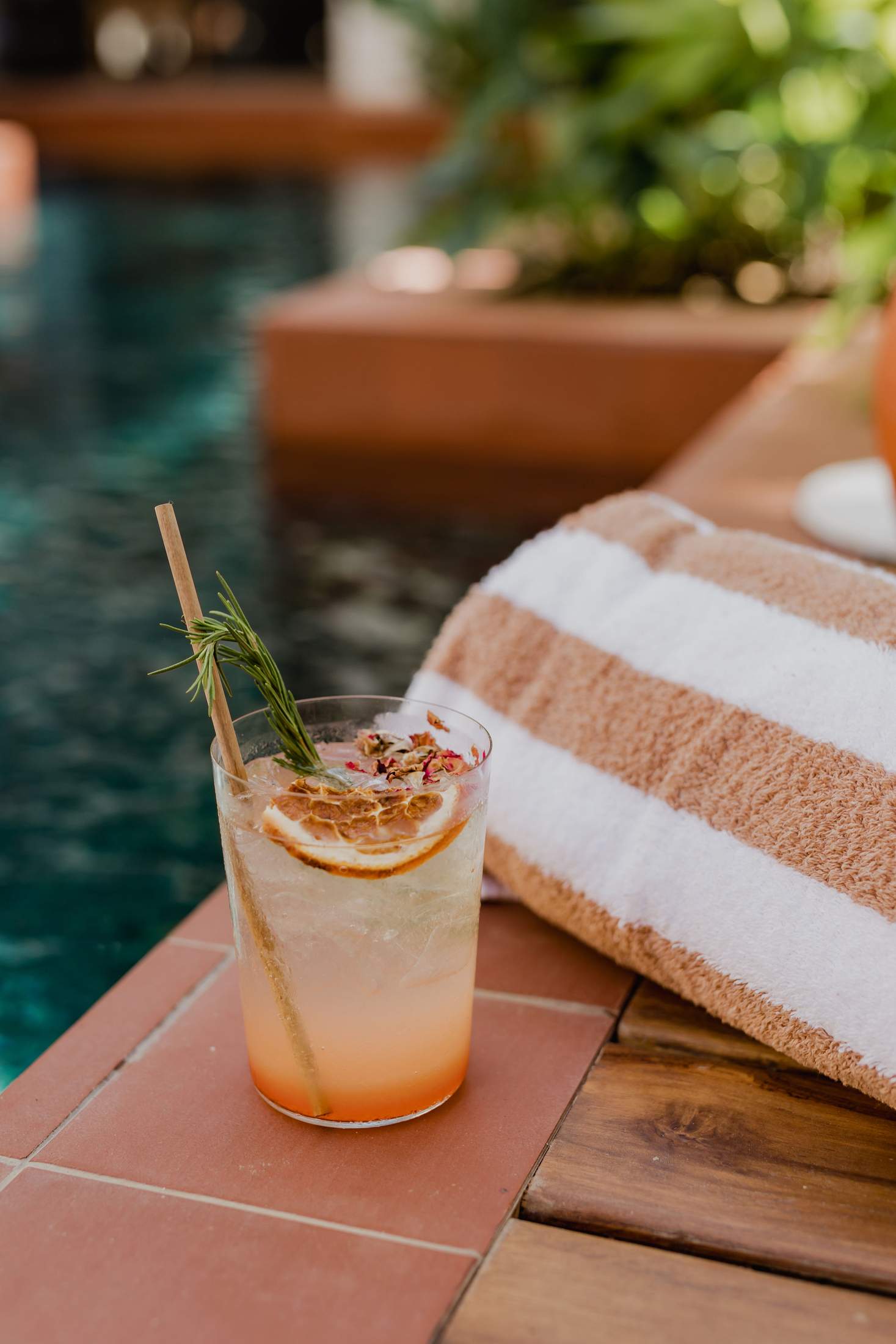
While Tannenbaum had come from the hospitality world, she notes that she was more on the “strategy” side. Though Costa Rica is “definitely business-forward, there’s a lot of hoops to jump through”, she says. Take the property’s outdoor showers. “We didn’t have space for both an outdoor shower and a shower in the rooms,” says Tannenbaum. “And we didn’t know how guests would feel about not having an indoor shower.” While a traditional hotelier wouldn’t take the risk, “we felt that it was really just part of our brand – connecting you to nature right away”.
The day-to-day reality of running a hotel has been eye-opening. “It’s definitely 24/7, 365 days a year,” she says. It is not simply the emergencies in the middle of the night. There’s the “constant pressure” of wanting to improve the hotel (Sendero is already expanding, adding a number of larger, family-friendly rooms). Then there’s the challenge of maintaining a property in an environment that takes its toll. “We are in the jungle,” she says. Though the fact that she is grinning as she says this suggests that Tannenbaum is rather enjoying her new occupation.
senderonosara.com
5
Prune, Hanawa & Ronan Merlin Lùme, Syracuse
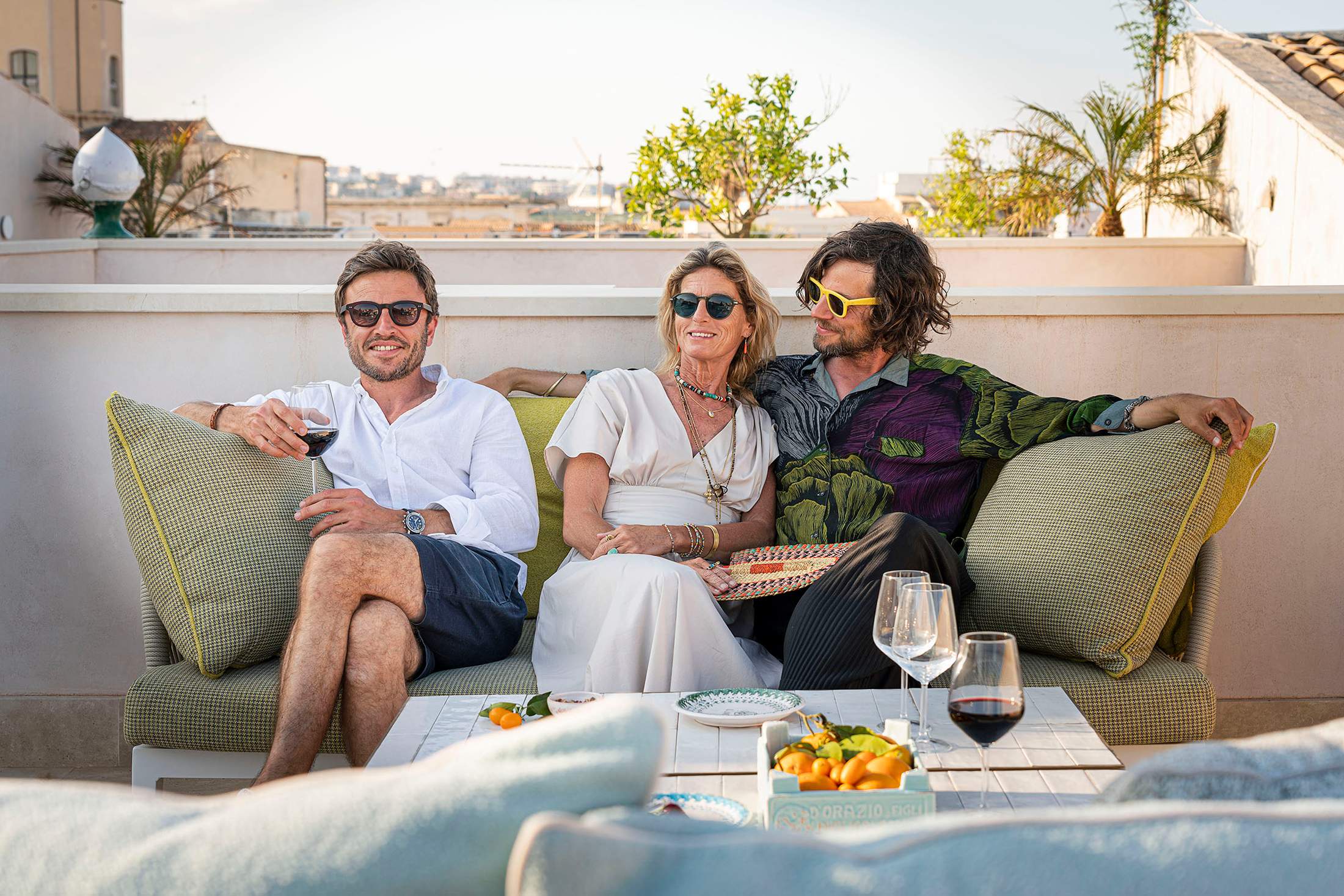
The Parisian boutique owner’s interiors wizardry came in handy when renovating this homely hotel, which is run by her cousin and his partner.
As the owner of a homeware boutique, Parisian decorator Prune Merlin was used to travelling the world in search of treasures for her shop. But when she first arrived in Syracuse in Sicily, she quickly felt that it was going to be more than a place for passing through. With the plan to establish a second home for her family in Ortigia, the city’s historic centre, she bought a crumbling three-floor property and decided to convert it into a residence with guest rooms.
However, with three children and a business back home, it was difficult for her to dedicate herself entirely to the running of a hotel. So she called on her Italian cousin, Hanawa, and his partner, Ronan, to manage the property. “We complement each other perfectly,” says Ronan as he shows MONOCLE around the intimate six-room hotel, Lùme, which opened in 2022. The couple gave up their Parisian life: Ronan sold his café and Hanawa left his full-time job in fashion. “We were tired of the city, so the prospect of a new career and life in the sun was very appealing,” says Ronan.
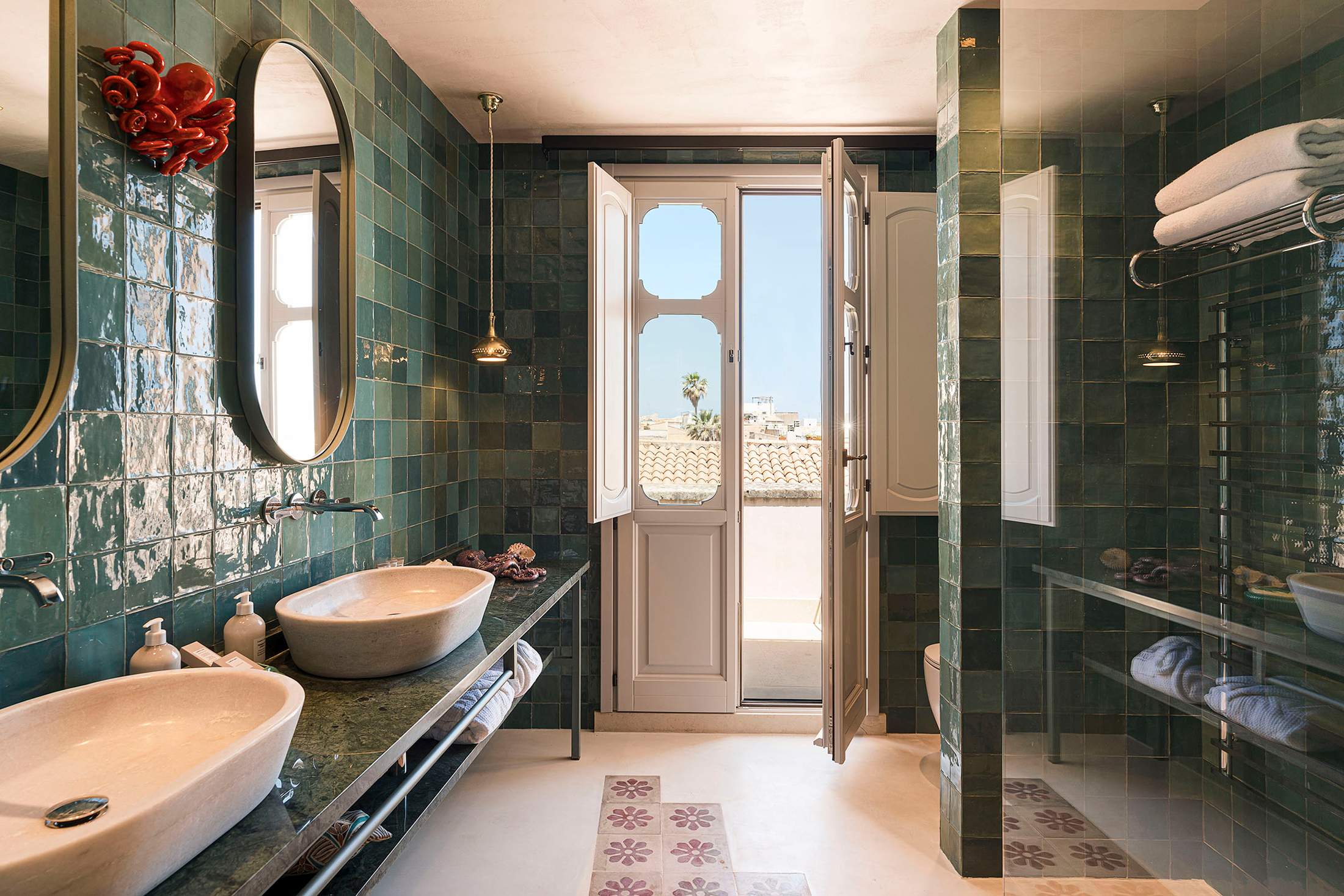
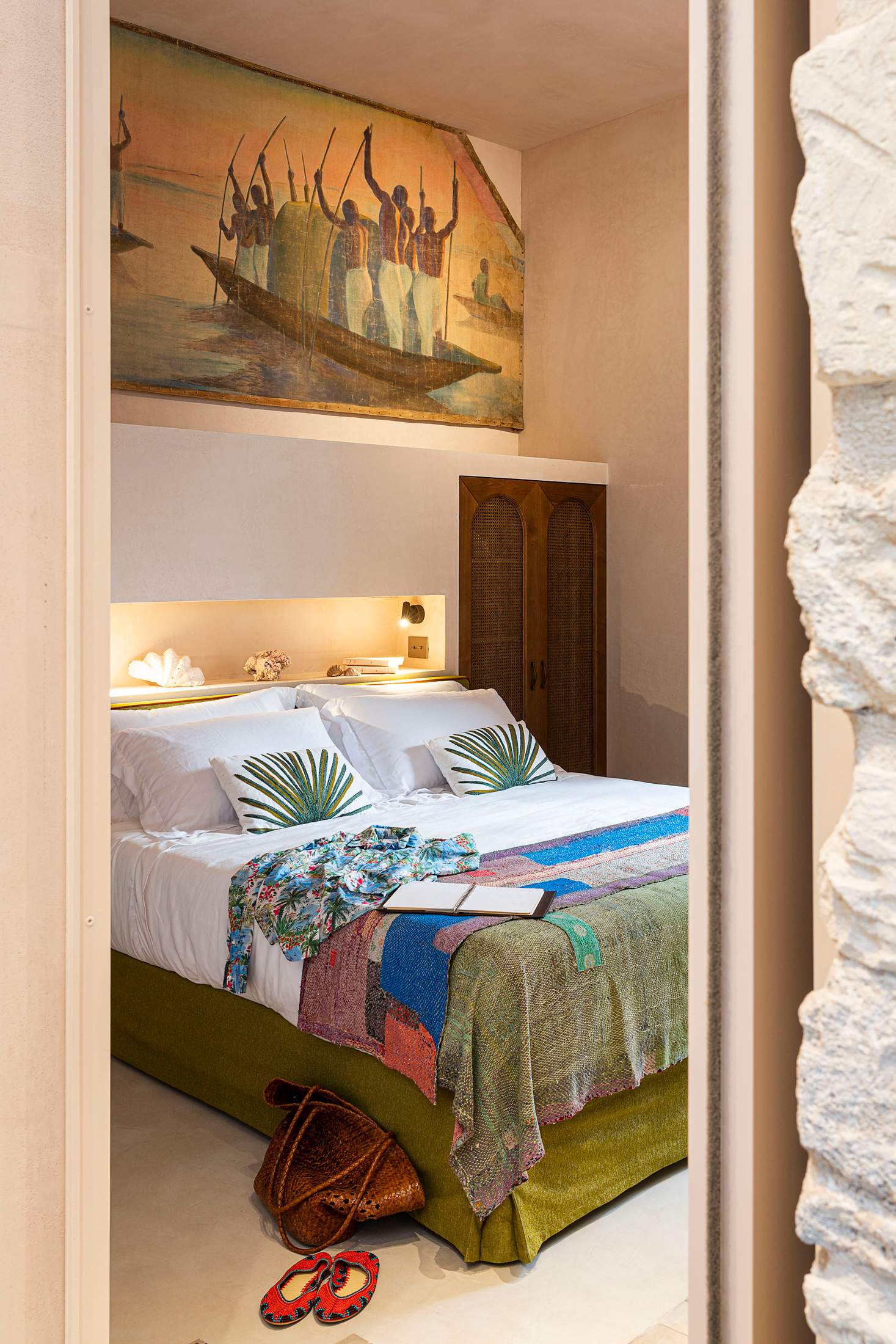
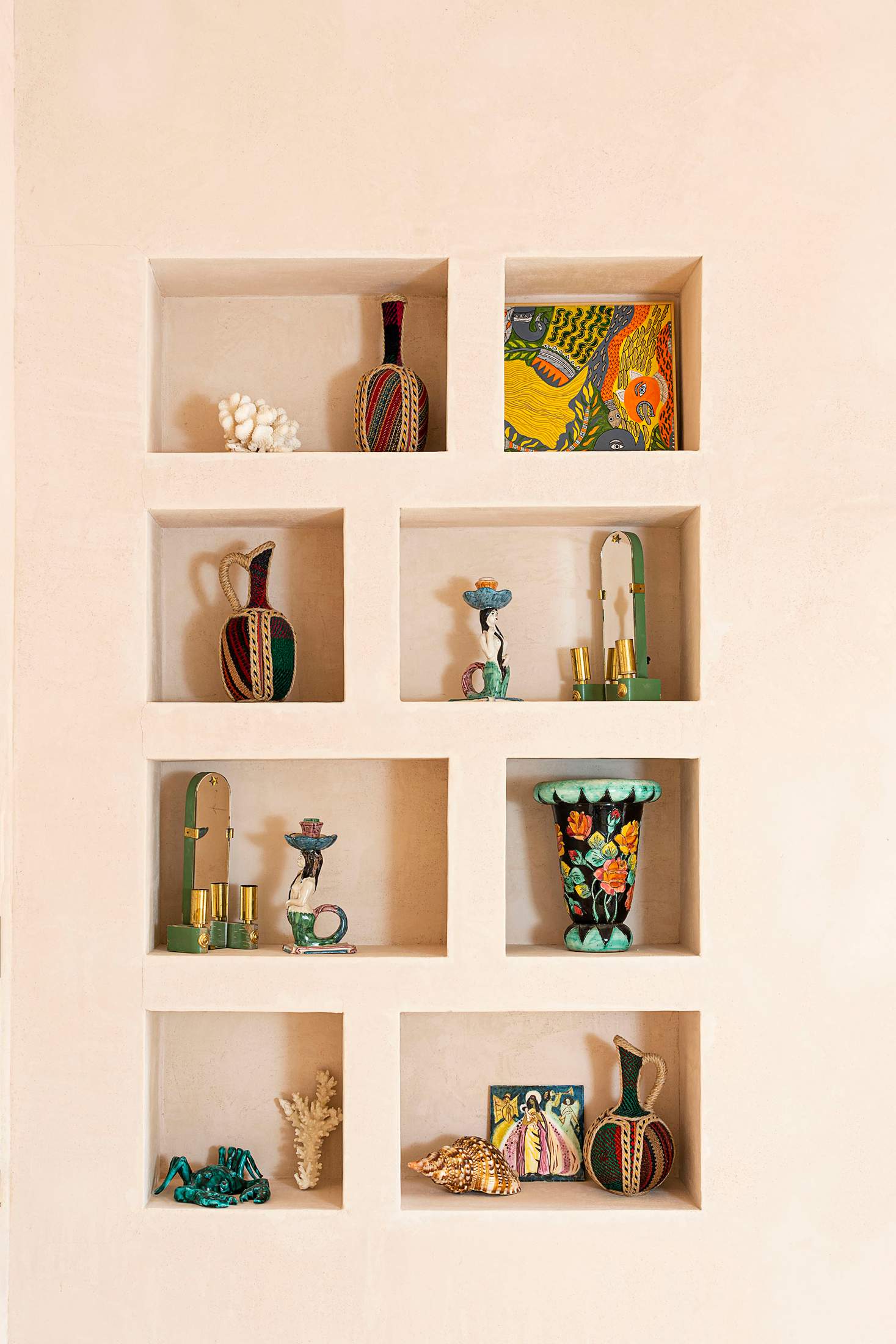
Lùme is very much a group effort. From the moment you step through its arched doors, you can smell the banana bread and freshly toasted granola, which Ronan makes daily for breakfast. Then, there’s the mix of brightly coloured textiles and vintage furniture, which bear Merlin’s stamp. “Prune’s force is decoration,” says Ronan, pointing at a Mediterranean-inspired tapestry commissioned from artist Pascal Monteil. “People appreciate the warm, homely atmosphere. After all, this is a family project.” Hanawa, the only native Italian speaker, is in charge of welcoming guests, especially those from Italy. His side gig as a fashion retail consultant for the likes of Hermès has also taught him the importance of attention to detail: fresh flowers and fruit bowls are a common sight at Lùme.
Though ambitious in the level of service and amenities they offer (there’s a hammam, gym and spa treatment room), the trio approach hospitality with the humility of a French maison d’hôtes. On sunny evenings, the rooftop terrace resembles a family gathering. Merlin enjoys the contact with guests and travels to Syracuse monthly. A new project is keeping her busy too: she’s opening a 21-bedroom seafront hotel in Ortigia in 2025 – with Ronan and Hanawa in tow, of course.
lume-ortigia.com


